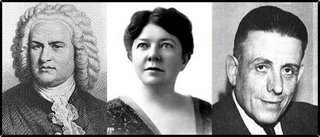Blasphemous Dogs, Recovering Catholics, and a Rediscovered American Gem
The The Feast of Reformation (on October 31st) is not a much celebrated holiday, probably not even in Protestant Germany. But in the 17th and 18th centuries, when religious denominations of entire fiefdoms and countries were still being determined by the sword (or inheritance), the celebration of ones own denomination was as important a side for its vitality as was the ardent, tenacious, and generally bloody struggle against the ‘other’ creeds. Johann Sebastian Bach (1685-1750) – praise be to (whichever) God – took part in this battle of beliefs on the celebratory and creative side. Born only thirty-seven years after the Peace of Westphalia ended the Thirty Years’ War, Bach contributed much more to Protestantism with his quill than he ever could have with a musket or pike. One such contribution, among 200 sacred (extant) cantatas, is Gott, der Herr ist Sonn und Schild (“The Lord God is our Sun and Shield”) BWV 79 which celebrates this “Feast of Reformation” – as does its more famous sibling-cantata, Ein fest Burg ist unser Gott (“A mighty fortress”) BWV 80 – and Bach took unusual care in crafting it, allowing himself an unusually generous half year to compose the cantata.
Continue reading this article at www.weta.org/fm/blog.






















































No comments:
Post a Comment